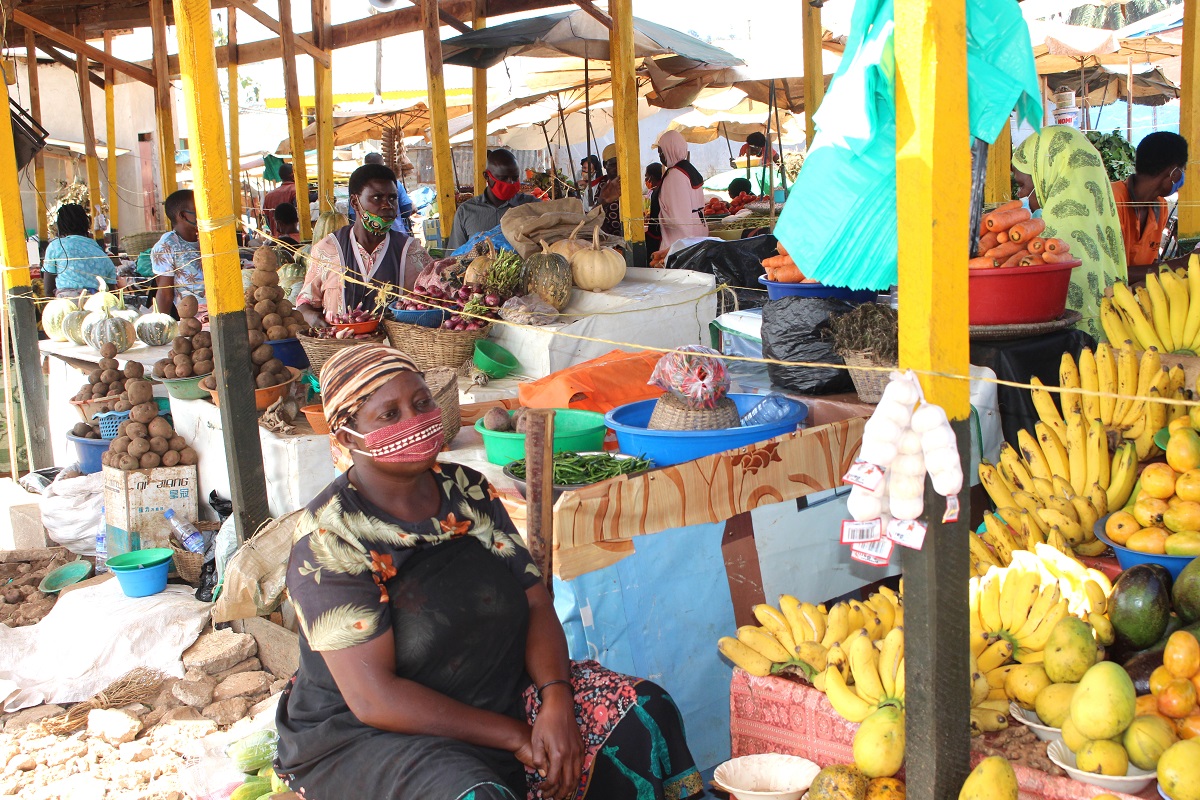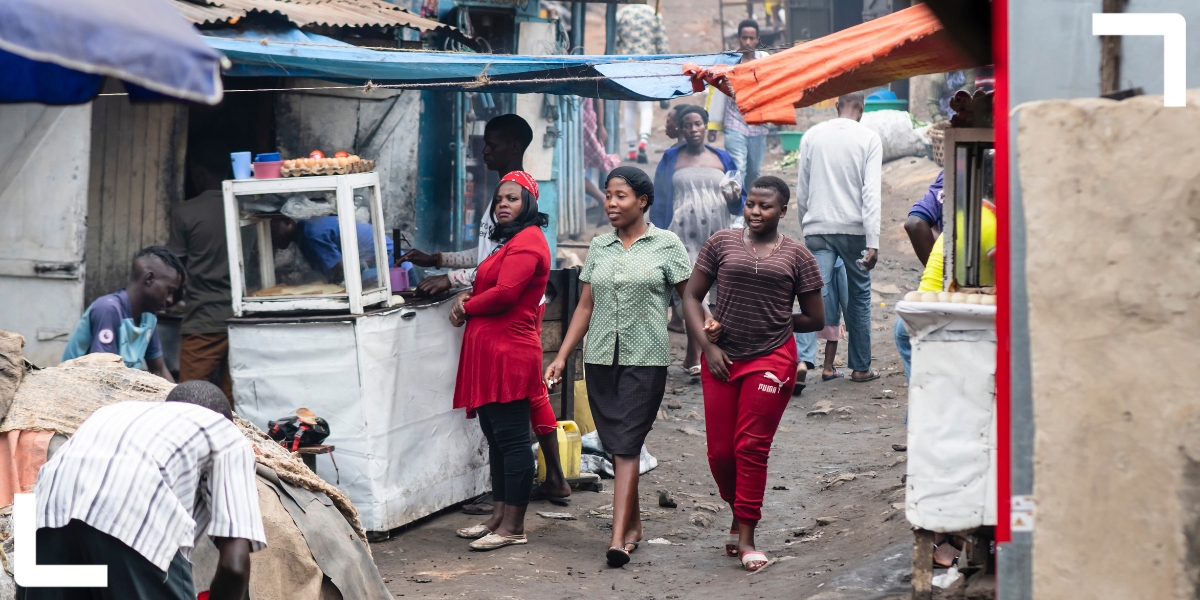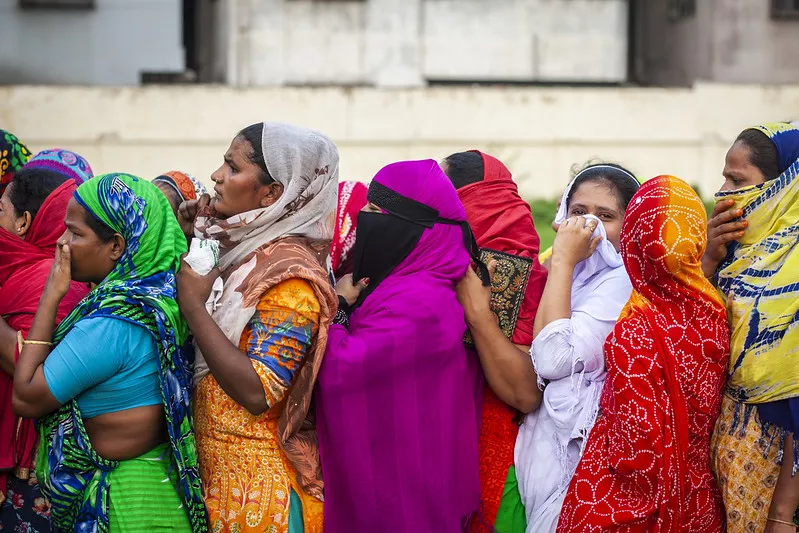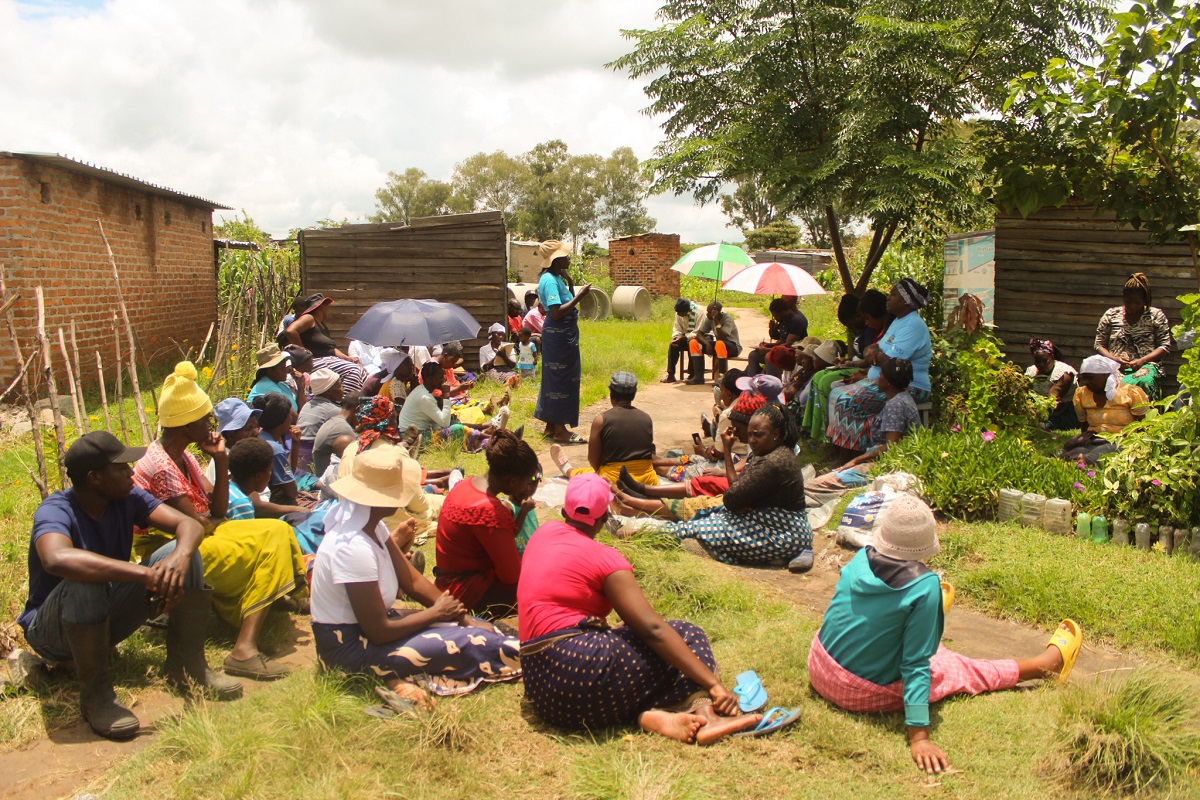The Covid-19 pandemic has left no corner of the world unaffected, and Kampala in Uganda is no exception. Now that the World Health Organization (WHO) declared a post-pandemic period, it is crucial to delve into how the pandemic was experienced by the informal sector within cities.
In this blog post, we draw on Covid Collective research conducted between 2020 and 2023 to delve into multidimensional effects and dynamics towards resilient recovery and sustainability within the informal sector in Kampala. We present the experiences of informal settlement residents and workers, who form a significant portion of the city’s population and workforce, and explore adaptive strategies.
Impact on the informal sector
From the onset of lockdowns in early 2020, the informal sector in Kampala was heavily impacted by the pandemic and its related containment measures – including curfews, suspension of non-essential services, closure of commercial activities, facemask mandates and sanitisations. Many informal workers lost their jobs or experienced reduced income due to lockdown measures, decreased economic activity and rising prices of basic commodities.
With over 82% of city residents employed in the informal economy – through casual labour, informal trade, street and market vending, and informal transport among others – unemployment levels for those in the informal sector rose to over 60%, with 72% of the population facing reduced incomes. Moreover, many self-organising saving systems collapsed, making it difficult for residents and workers to mobilise funds for livelihood sustenance.
Although some relief in the form of food and cash transfers was provided to vulnerable residents and workers during lockdowns, the economic impacts directly affected the livelihoods of informal settlement residents. As well as exacerbating their vulnerability to food insecurity, poverty, crime and antisocial behaviours including substance abuse and prostitution, residents also faced limited access to urban water, sanitation and hygiene (WASH) services. In turn, this crippled the adoption and implementation of recommended containment measures.
Care burdens increased among female-headed households and single mothers, whose abilities to purchase critical necessities were impeded, with family break-ups and domestic violence exacerbating the situation for residents and workers. Despite limited opportunities for work, school-aged children were pushed into employment, which seems to have led to higher levels of school dropouts even when the education sector was allowed to operate normally. Schoolgirls were doubly exposed, with many pushed into prostitution and suffering sexual abuse, leading to more teenage pregnancies.
Deployment of heavy security to enforce curfews and lockdowns during the peak periods of the crisis in 2020 and parts of 2021 significantly reduced insecurity in the city – particularly theft along major streets and in markets and trading centres – but criminality increased again after the reopening of the economy.

How the informal sector responded
Despite such hardships, residents adopted several coping strategies to reduce the spread of the virus, including the use of masks, handwashing and social distancing. They also relied on traditional remedies to treat Covid-19 like symptoms, due to limited access to and lack of trust in the healthcare system. Informal workers and residents used remedies such as herbal teas, steam inhalation and traditional medicines in an attempt to boost immunity and alleviate symptoms.
The majority of residents and workers devised alternative income sources and work routines as they struggled to make ends meet and sustain livelihoods. As a way of navigating the precarities and demands of the pandemic, many diversified their services – especially through offering mobile services, switching to selling essential items and producing or selling face masks, hand sanitisers and high-demand food items as a way of compensating for the market decline of regular products.
Digital communication technologies played a crucial role in maintaining social connections and facilitating economic exchange amongst workers and residents. Social media, messaging apps and video conferencing platforms were used to stay in touch with friends, family, and customers, also providing social and psychological support during the crisis.
Digital platforms also became avenues for selling products and services, with market vendors, restaurant operators, salons and boda-boda riders using WhatsApp, Twitter, Facebook, LinkedIn and Instagram to reach customers. Furthermore, digital technologies enabled the delivery of food items and services to both low-income and high-income communities. The increased adoption of digital entrepreneurship and e-commerce – especially among youth in various sectors – was observed across Kampala and Uganda. Internet penetration in Uganda saw a significant increase, contributing to the expansion of digital livelihoods and economic exchange.
Vaccine access and uptake
Prior to the reopening of the economy in January 2022, vaccine inaccessibility was a significant concern, with global vaccine inequality in distribution, availability and pricing. Although Uganda received over 48 million doses of vaccines through donations and government procurement, hesitancy to get inoculated was especially high amongst the youth population between 2020 and mid-2021 – largely due to the circulation of fake news around vaccines being unsafe and youths being immune to the virus. From September 2021 to August 2022, the expansion of vaccination programmes, mass awareness campaigns and the establishment of vaccination centres in communities worked to challenge vaccine hesitancy. However, perceptions that it was best to resist vaccination continued until people could see that those who had been fully vaccinated remained healthy and alive – contrary to the beliefs of the non-vaccinated majority.
About 26.3 million Ugandans had either received the first dose or been fully vaccinated by December 2022, and the majority changed their attitudes towards vaccination. Locally inclusive vaccination campaigns that involved the Village Health Teams (VHTs), civil society organisations, local leaders, government, religious and cultural institutions, and the private sector increased uptake of vaccines amongst informal workers and residents. This progress highlights the importance of prioritising local-level health programming and stakeholder campaigns to support crisis management and protect vulnerable groups.
“Smart city” exclusionary urban reforms
Compounding the effects of the crisis, the implementation of the Kampala Capital City Authority’s (KCCA) so-called Smart City Campaign from January 2022 further marginalised the informal sector. The smart city strategy is an ambitious vision to decongest Kampala, while making it an inclusive, resilient and well-planned city that provides economic opportunities for all. But while the goal is to transform Kampala into a high-tech city that facilitates economic growth, quality life, city resilience, governance, citizen engagement and institutional capacity development, its implementation has targeted informal operations in key sectors like transport, vending and trading, which employ the majority of the city’s residents.
In an effort to decongest the city, the majority of informal workers – including boda-boda riders, hawkers, roadside traders and street vendors – have faced or are being threatened by the smart city rhetoric with the suspension of their operations. A boda-boda free zone was created, which will see riders denied access to the city’s central business district (CBD) when fully realised. Such exclusionary reforms ignore the vital role that the informal sector plays in the local economy and worsen the already dire situation for informal workers and residents.

Image taken from the ACRC website.
Moreover, heavy security deployment to evict several traders and riders, prevents them from operating within the city’s spaces. Many have experienced merchandise and income losses as a result, along with unemployment and inappropriate legal actions that included imprisonment, fines and bribery. Many informal traders and transport operators continue to work without proper licensing or permits, putting them at risk of eviction or confiscation of their vehicles, goods and merchandise.
The Covid-19 crisis also presented city and state authorities with an opportunity to implement wetland restoration initiatives located in workspaces and residential areas of the marginalised communities. The KCCA and National Environment Management Authority (NEMA) launched evictions of vendors and traders operating in ecologically sensitive corridors of Lubigi and Ggaba, thereby depriving them of their workspaces. Eviction threats and enforcement continue despite shrinking urban spaces to accommodate informal workers and residents within the city. Interestingly, informal workers have resorted to working within their own settlements. This reduces pressure and clashes from the city authorities, but at the same time worsens congestion and neighbourhood wellbeing, which could increase poverty, inequality and socioeconomic risks and vulnerabilities. These combined challenges indicate the direct and deeply negative economic effects of the Covid-19 crisis on informal economic operations, incomes and livelihoods.
Promises for a socially inclusive and sustainable resilient recovery
The need for a collective response to the Covid-19 pandemic has provided space for multi-level dialogue in Kampala – enabling collaboration and cooperation between government, the informal sector and civil society, and manifesting further opportunities for informal sector mainstreaming, integration and revitalisation. As the pandemic created an extraordinary situation, there is a promising shift in policy and programming in favour of resilient recovery and improved sustainability of informal work and livelihoods. Since the pandemic outbreak in 2020, grassroot organisations and communities have been at the core of devising responses viable to building resilience and recovery of the informal sector.
The longstanding challenges in waste management, poverty, WASH and transport remain significant in low-income communities, coupled with ineffective government interventions. As such, grassroot organisations and community-level collectives are critical in mobilising WASH kits, advocating for localised service delivery and livelihoods recovery for resilient urban communities.
Community support groups
During the pandemic, informal sector workers and residents in Kampala formed community support groups to address social issues arising around social protection and relief support mobilisation, as well as access to healthcare services. Community support groups enabled multi-stakeholder collaborations between the private sector, civil society organisations (CSOs), individuals and government to mobilise resources and build community-level adaptation capacities to deal with the effects of the pandemic. These support groups ensured that the mobilised relief and support is distributed to the hardly hit groups and can therefore be used as springboards for socially inclusive social protection and collective support during crises.
Localised service delivery
The Ministry of Health and KCCA acknowledged and embraced community-level health services and care for vulnerable communities in the informal sector, by leveraging on the opportunities presented by Village Health Teams (VHTs) and Health and Hygiene (H&H) to foster inclusive health services. These led to the implementation of localised Neighbourhood Health Support (NHS) systems for low-income residents through innovative healthcare delivery models – including mobile clinics, health bazaars and door-to-door health and sanitation programmes. Such has enriched the production and dissemination of timely, accurate and up-to-date information guidelines for health support systems while preparing and responding to health shocks.
The local-level participation of VHTs and H&H officers directly devolves health services like vaccination, health sensitisation and awareness, treatment of chronic illness, mobile clinics, public health campaigns and community-based healthcare facilities, offering opportunities for meaningful service delivery gaps closures in low-income settlements. Despite being resource constrained and episodic in nature, NHS offer opportunities to strengthen socially inclusive and sustainable healthcare for informal workers and residents and provide entry points for localisation of services and community engagement across all sectors of urban economy in Kampala.
Local economic development, recovery and community engagement
Livelihood and economic empowerment initiatives for disadvantaged communities are also on the rise in Kampala and tailored to resilient recovery. The inclusion of marginalised groups like women, youths, people living with disabilities and chronically ill individuals in livelihood and economic empowerment programmes is increasingly being appreciated in government and CSOs programming and implementation. Besides, the creation of decent workspaces for low-income populations is incrementally also taking shape to make Kampala an inclusive city. CSOs and community collectives are prioritising savings as a way of rejuvenating struggling livelihoods. Ongoing multi-stakeholder engagement provides spaces for dialogue on how to strengthen social protection and its distributional effects, and expansion to reach a wide spectrum of vulnerable groups. A comprehensive framework for engagement with CSOs, private sector, government entities, city authorities and communities is a requisite to mobilise support for increased social protection, but also financing and evidence-based distribution of supplies and resources to those in need.
Ultimately, the Covid-19 pandemic has exposed the vulnerabilities and challenges faced by informal settlement residents and workers in Kampala, but has also highlighted their resilience, resourcefulness and potential for collaboration.
By recognising their needs, protecting their rights and engaging them in urban planning and development processes, we can work towards building a more resilient and sustainable city that prioritises the wellbeing of all community members. The lessons learned from the pandemic experience can offer pathways for more inclusive and equitable responses to future crises in Kampala and other cities around the globe.
This blog was originally published on the African Cities Research Consortium website.


